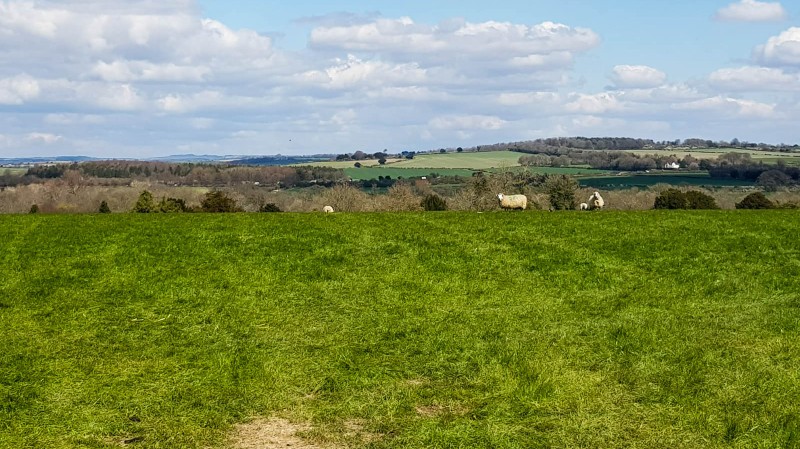You are here: What is an Index Map search and why do I need it?
A search of the index map, or SIM, as it’s usually referred to, is a search of the Land Registry’s mapping records. It shows whether a particular piece of land is registered or not. The majority of the land in England and Wales is registered (87%), but not all so it is vital to check.
This is particularly relevant if you are buying a piece of land for self-build, for example. Or you need to cross someone else’s land to access your property. Your legal professional needs to check, just like they would for any residential property, whether the land is registered or not and to whom.
With a residential property, residential searches of the Register and the Title plan (see previous articles) are used; for land, a SIM is used instead.
The Land Registry’s computerised map is based on the Ordnance Survey map, it provides an index of every registered title and every pending application in England and Wales.

Are they mandatory?
Yes, unless you are buying without a mortgage. When you are buying with a mortgage, the conveyancing solicitor has to follow a set of standard instructions defined in The UK Finance Mortgage Lender’s Handbook.
The handbook comes in two parts, the first part applies to all UK Finance members –members of the organisation represent 97% of lending in the UK.
Part 2 contains a section for each member, detailing their requirements. This is where your conveyancer will find the list of which searches are required by your lender. In most cases the minimum required will be:
- Land registry searches (both Register and Title Plan) or SIM in the case of land
- Local search - either Regulated or Council (both LLC1 and CON29)
- Water and Drainage - Regulated or CON29DW
- Environmental (likely to contain an element of ground stability assessment)
Further reports required include (but aren’t limited to):
- Flood
- Coal
- Cheshire Brine
- Limestone
- China and ball clay
- Tin
- Bath stone
- Radon gas
- Chancel repair liability reports (if the last purchase was before 12/10/13)
- Canal and river search
- Planning reports
- Highways
See other articles for more information.
When are they ordered?
Searches should be ordered as soon as you appoint your conveyancing solicitor: as a minimum this includes Land Registry and Local Searches, Water and Drainage Searches, an Environmental Search, a Flood Risk Report and any specifically required searches based on geography, such as Radon Gas, Mining or China Clay searches.
One of the first things your conveyancer will do is ask you for money ‘on account’ to pay for these searches.
On a land transaction, a SIM should always be carried out to establish whether it is registered or not and to what extent. For example, boundaries tend to change over time and it’s possible that part of the land you’re buying may have already been registered as part of neighbouring land or that the extent of the land is greater than that actually owned according to the deeds.
A SIM should also be carried out on pieces of land like access roads, over which rights are required but haven’t been granted. This search will help establish the owner of the land and may give an indication of whether a right of way may be granted.
What do they tell you?
The result will tell you:
Whether the land is registered or not
The extent of the registered land
The title number
The type of registration that has been disclosed
All registered land is given a unique reference number (the title number) and the details of any sale of that land or property are held against that number at the Land Registry.
If it’s not registered, a caution against first registration will be made. This means the person conducting the search will get a notice from Land Registry when, and if, another party tries to register or transfer (sell) the land. Any sale, gift or first mortgage will trigger the first registration.
Different types of registration include:
- Pending applications for first registration
- Pending applications for caution against first registration
- Registered estates in land
- Registered affecting franchises
- Cautions against first registration
Are there different types?
No, they can only be ordered directly from the Land Registry.
What do they cost?
They cost around £8, or more if additional titles are associated with the land.
How long do they last?
When acting on a conveyance, your solicitor must follow The UK Finance Mortgage Lender’s Handbook, it says that searches must be no more than 6 months old on completion. A lot can change in a short space of time with property: heavy rainfall (the main cause of ground instability), for example, can happen at any time. But, in any case, it’s important that the information you have about your new property is as up to date as possible. Your conveyancer will let you know if the search is coming close to expiry.
If you are thinking of buying or selling your home, you may find some of these services useful:
Conveyancing
Get instant estimates from Conveyancers and Solicitors in your local area
Mortgage Brokers
I need help getting a mortgage
Estate Agent
Find a local Estate Agent
Valuation Surveys
If you need a Valuation Survey
Building Surveys
I want a local surveyor to do a Building Survey for me
Removals
I want to find a removal company
Energy Performance Certificate
Energy Performance Certificates